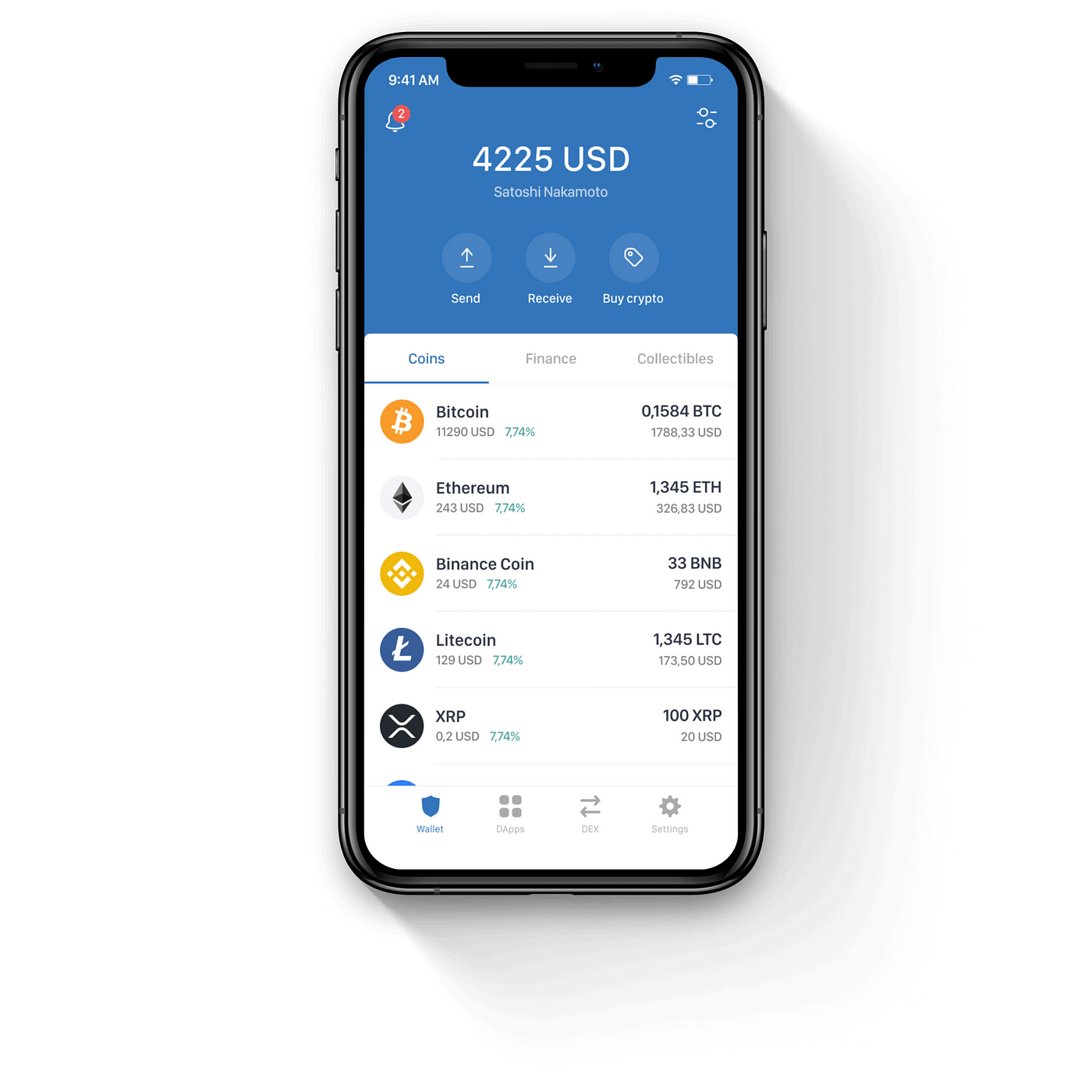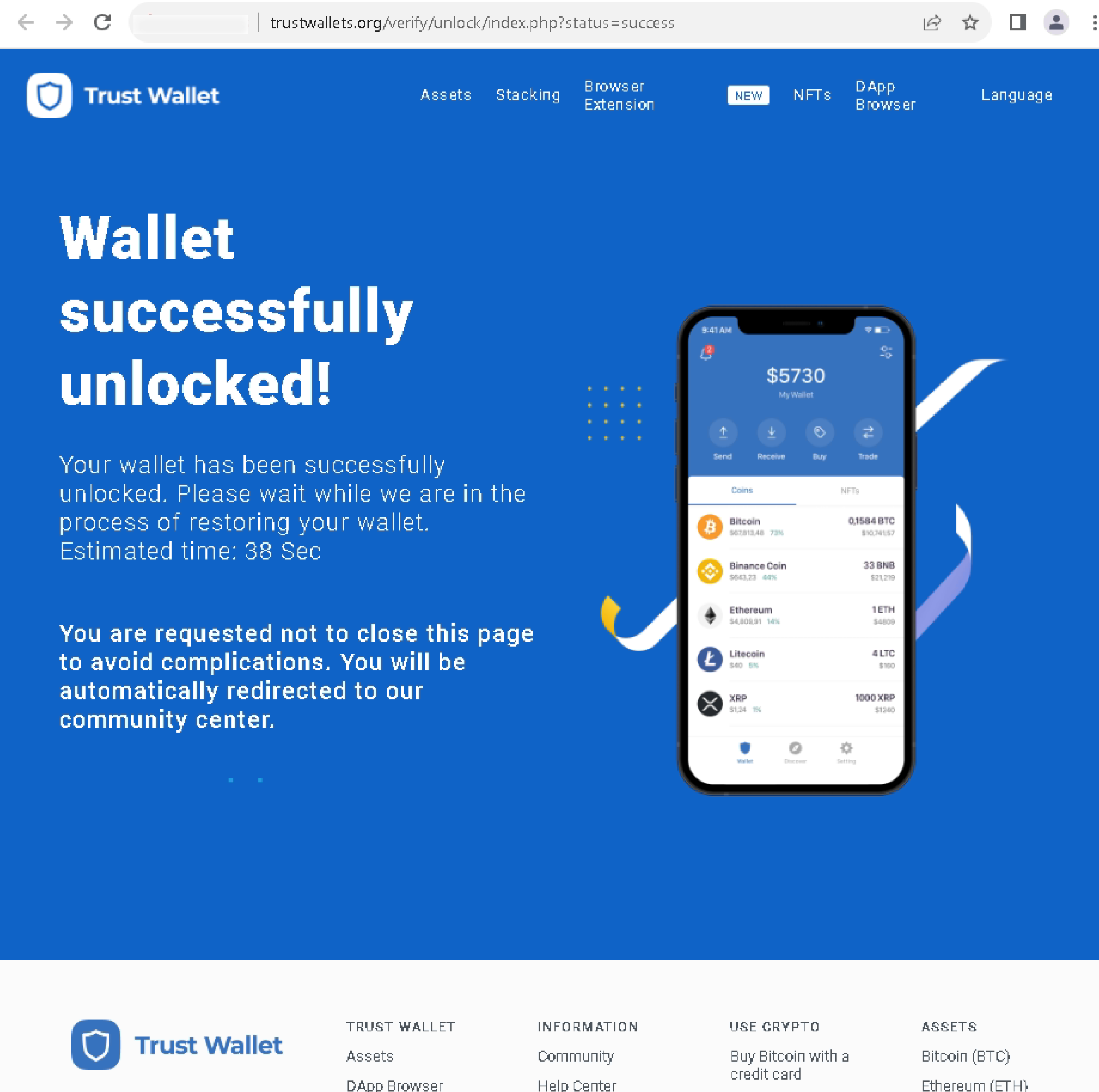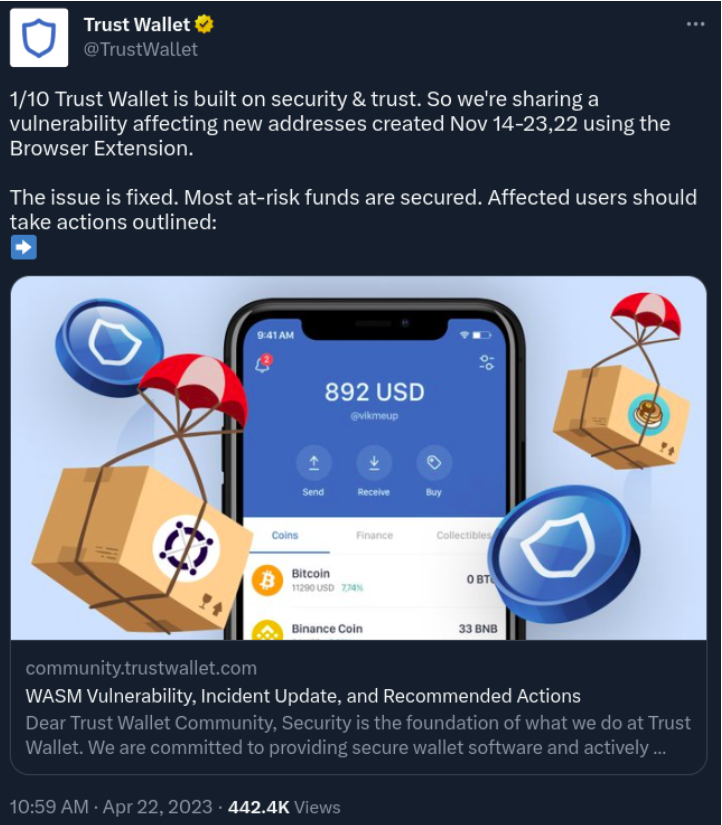Yes, coins can be stolen from Trust Wallet if a user’s private keys or recovery phrase are exposed through phishing, malware, or inadequate security practices.

Understanding Trust Wallet’s Security Measures
Trust Wallet employs multiple layers of security to safeguard users’ assets. These measures are designed to protect against unauthorized access and ensure that users have exclusive control over their funds.
The Role of Encryption in Protecting Your Wallet
- End-to-End Encryption: Trust Wallet uses advanced encryption algorithms to secure data transmission between the user’s device and blockchain networks, ensuring that sensitive information is unreadable to unauthorized parties.
- Secure Storage: Encryption is also applied to the storage of private keys on the user’s device, making it virtually impossible for hackers to extract usable data without direct access to the device and the necessary decryption key.
Local Storage of Private Keys: A Double-Edged Sword
- User Control and Security: By storing private keys locally on the user’s device, Trust Wallet ensures that users have full control over their assets without relying on third-party services. This approach significantly reduces the risk of server-side hacks.
- Responsibility on Users: The local storage model places the responsibility of securing the device and backing up private keys on the users. Loss or theft of the device without proper backup can result in irreversible loss of assets.
Regular Security Updates and Their Importance
- Patch Vulnerabilities: Regular updates to Trust Wallet include patches for newly discovered vulnerabilities, reducing the window of opportunity for attackers to exploit them.
- Feature Enhancements: Updates often introduce new security features and enhancements, further improving the wallet’s resilience against threats.
- User Participation: Keeping the Trust Wallet app up to date is crucial. Users are encouraged to install updates promptly to benefit from the latest security improvements and feature additions.
Trust Wallet’s security framework is comprehensive, employing encryption, local storage of private keys, and regular updates to protect users’ assets. While these measures provide robust security, the importance of user vigilance and responsible management of private keys cannot be overstated. Users are integral to the security ecosystem, and their active participation is necessary to ensure the highest level of protection for their digital assets.
Common Threats to Cryptocurrency Wallets
Cryptocurrency wallets, while secure, are not impervious to threats. Users must be aware of common risks and employ strategies to safeguard their assets. Here’s a look at some prevalent threats and how they can compromise wallet security.
Phishing Attacks: The Frontline Threat
- Deceptive Communications: Phishing attacks often involve tricking users into providing sensitive information (like recovery phrases or private keys) through fake websites or emails that mimic legitimate services.
- Social Engineering: Attackers use persuasive messages that create a sense of urgency, prompting users to act hastily and compromise their wallet’s security.
- Prevention Measures: Always verify the authenticity of communications and websites. Trust Wallet and other reputable services will never ask for your private keys or recovery phrases via email or messages.

Malware and Spyware: Silent Thieves
- Keylogging and Screen Capture: Malware can include keyloggers that record keystrokes or software that captures screen activity, potentially exposing private keys and other sensitive information.
- Trojans and Spyware: These malicious programs can lurk undetected on devices, giving attackers remote access to your wallet or silently transmitting data to them.
- Protection Strategies: Regularly update your operating system and security software, avoid downloading unknown apps, and conduct frequent scans for malware.
The Dangers of Public Wi-Fi Networks
- Unsecured Connections: Public Wi-Fi networks often lack strong encryption, making it easy for attackers to intercept data transmitted over the network, including login credentials or wallet information.
- Man-in-the-Middle Attacks: Attackers can position themselves between the user and the connection point, capturing data transferred over the network.
- Safe Practices: Avoid accessing your cryptocurrency wallet or performing transactions over public Wi-Fi. Use a virtual private network (VPN) to encrypt your data transmission for added security.
How Trust Wallet Responds to Unauthorized Access Attempts
Trust Wallet implements several robust security measures designed to detect and respond to unauthorized access attempts, safeguarding users’ digital assets effectively. These mechanisms are crucial in maintaining the integrity and safety of the wallet.
Real-Time Security Monitoring
- Continuous Monitoring: Trust Wallet employs continuous security monitoring to detect suspicious activities and potential unauthorized access attempts in real time. This proactive approach allows for immediate response to potential threats.
- Automated Alerts: Users receive automated alerts for unusual activity, enabling them to take swift action to secure their accounts, such as changing security settings or verifying recent transactions.
The Use of Biometric and Two-Factor Authentication
- Biometric Authentication: Trust Wallet supports biometric authentication methods, such as fingerprint scanning and facial recognition, offering a high level of security that is unique to each user. This method ensures that only the authorized user can access the wallet.
- Two-Factor Authentication (2FA): Although Trust Wallet emphasizes control and security through private keys stored on the device, users are encouraged to use additional layers of security where applicable, such as 2FA for accessing related services or platforms.
Recovery Options in the Event of Compromise
- Recovery Phrase: Trust Wallet provides users with a recovery phrase during the initial setup. This phrase is essential for restoring access to the wallet in the event of device loss or if the wallet is compromised.
- Secure Backup Practices: Users are advised to keep their recovery phrase in a secure, offline environment. Trust Wallet emphasizes the importance of never sharing the recovery phrase online or storing it in a digital format that could be susceptible to hacking.
User Responsibilities in Securing Their Wallet
While Trust Wallet implements robust security measures, users play a crucial role in safeguarding their cryptocurrency assets. Understanding and fulfilling these responsibilities can significantly enhance the security of one’s wallet.
The Importance of Keeping Recovery Phrases Safe
- Secure Storage: The recovery phrase is the key to your wallet and must be stored securely and privately. Physical copies should be kept in safe places, such as a locked drawer or a safe deposit box, away from potential physical or digital threats.
- Avoid Digital Storage: Never store your recovery phrase in a digital format (like taking screenshots, storing in cloud services, or sending via email) to prevent unauthorized access through hacking.
Recognizing and Avoiding Phishing Scams
- Vigilance: Always be wary of emails, messages, or websites asking for your recovery phrase, private keys, or personal information. Trust Wallet will never ask for these details.
- Verify Sources: Before clicking on links or downloading attachments from emails or messages, verify the authenticity of the source. Look for official communication channels if you need to confirm the legitimacy of a request.
Regularly Updating Wallet Software
- Stay Updated: Ensure that your Trust Wallet app is always up to date. Developers regularly release updates that include security enhancements, new features, and patches for vulnerabilities.
- Operating System Security: Along with updating the wallet app, keep your device’s operating system updated. This helps protect against vulnerabilities that could be exploited to gain unauthorized access to your wallet.

Securing a cryptocurrency wallet is a shared responsibility between the user and the wallet provider. By diligently keeping recovery phrases safe, remaining vigilant against phishing attempts, and regularly updating wallet software, users can significantly bolster the security of their Trust Wallet and protect their valuable digital assets.